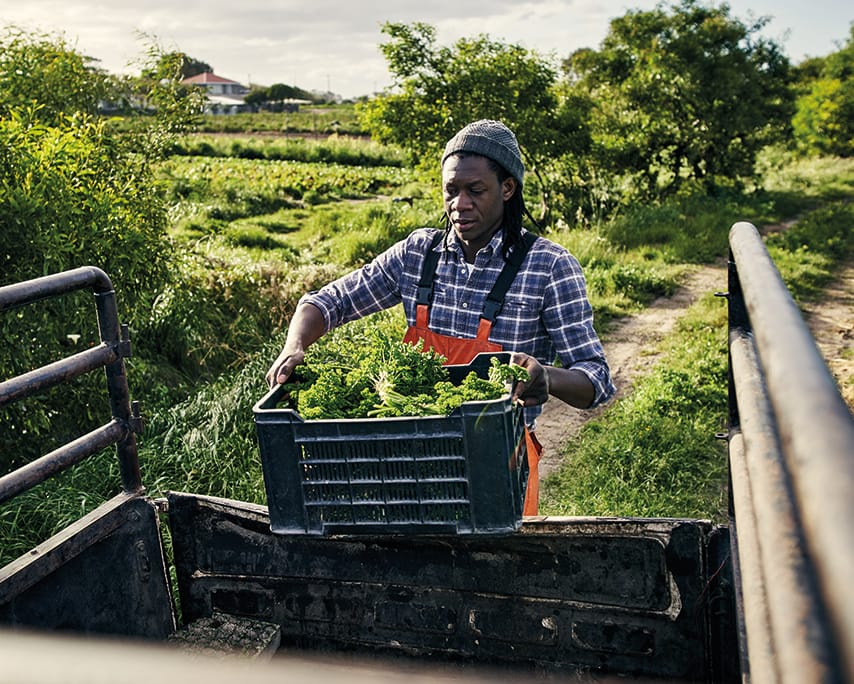What sustainable transport for African farmers looks like
Transport plays a pivotal role in the lives of farmers. Equally important is a secure and sustainable transport system that enables farmers to transport their produce to markets, access essential resources, and sustain their livelihoods. However, transport in many rural African areas remains unreliable, expensive, and often environmentally harmful. With the rise of sustainable Transport solutions in urban areas, it is time to consider what sustainable transport might look like for African farmers.
Many African farmers face significant transport challenges due to a lack of infrastructure, high costs, and limited vehicle availability. Rural areas often lack well-maintained roads, making transport challenging, especially during the rainy season when roads become impassable. This inadequate infrastructure increases fuel and maintenance costs, cutting into farmers’ already slim profits. Moreover, many farmers rely on old, fuel-heavy vehicles that produce high emissions, contributing to environmental degradation and compounding the climate challenges facing agriculture. To this effect, reliable transport is essential for reducing post-harvest losses, yet African farmers lose significant portions of their crops due to delays in reaching the market. These inefficiencies not only impact farmers’ incomes but also increase food insecurity.
For transport to be sustainable, it must have a low environmental impact, be economically viable, socially inclusive, and resilient enough to withstand climate challenges. For African farmers, this means affordable, eco-friendly transport options that can navigate rural landscapes and help reduce emissions. Sustainable transport systems must also address the unique needs of smallholder farmers, providing solutions that are accessible, cost-effective, and adaptable to different crops and market requirements.
Fortunately, there are growing innovations in sustainable transport for African farmers. Electric bikes and solar-powered tractors are emerging as viable, low-emission options for rural environments. Electric cargo bikes, for example, are affordable and efficient, helping farmers transport produce with minimal environmental impact. Additionally, some communities are pooling resources to create transport cooperatives, reducing individual costs while increasing transport accessibility. Mobile logistics platforms are another promising innovation, enabling farmers to connect directly with transport providers. These digital platforms help farmers find affordable options and plan routes more effectively, reducing costs and minimising waste. Microfinancing options also offer a pathway to sustainable transport by providing small loans that enable farmers to invest in eco-friendly vehicles. This financial support helps farmers afford modern, sustainable equipment that reduces emissions and transport costs over time.
Implementing sustainable transport has the potential to transform African agriculture. Farmers can reduce post-harvest losses and increase their income through better market access by ensuring reliable, efficient transport options. Sustainable transport also brings social benefits, fostering more robust community networks and improving food security by reducing waste. It can enhance gender equality, as improved transport allows more women to access markets and participate actively in agricultural value chains.
However, to scale these solutions, a multi-stakeholder approach is essential. Government support through subsidies or tax incentives for eco-friendly vehicles will help lower costs. The private sector and non-governmental organisations can drive innovation and provide training, while community-based initiatives encourage shared resources and transport cooperatives. Additionally, more research and development are needed to design affordable, eco-friendly transport options tailored to African conditions.
Sustainable transport for African farmers is within reach, with promising innovations, policy support, and community involvement. African nations must invest in these solutions to empower farmers, strengthen food security, and create a more sustainable agricultural system.



